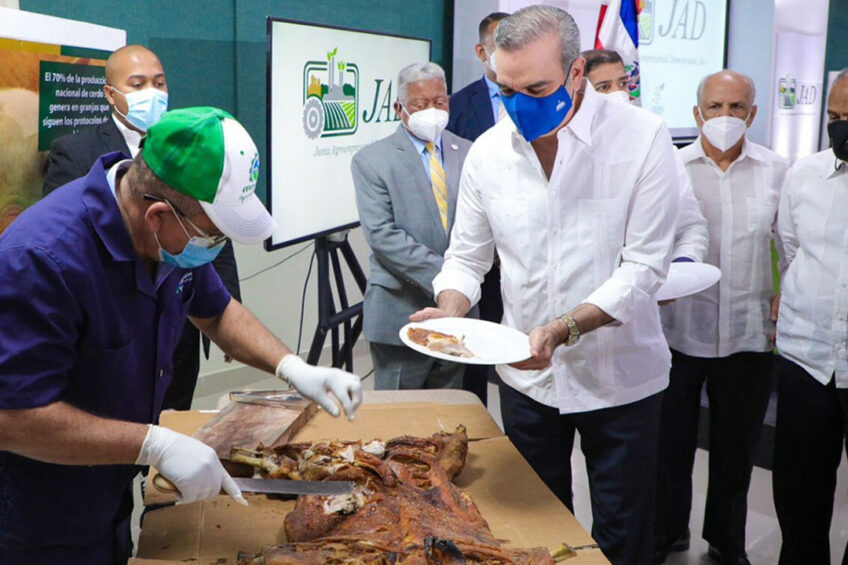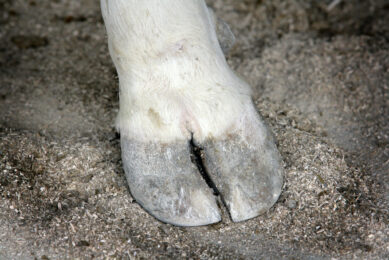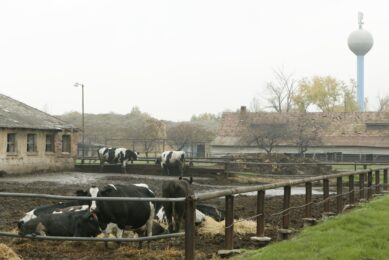ASF Dominican Republic: Unrest despite compensation

The government in the Dominican Republic has allocated about 39 million pesos (US$?674,000) for compensation to swine producers, affected by African Swine Fever (ASF). Simultaneously, there is uncertainty amongst smaller producers as some fear the sacrifice of healthy pigs.
On Tuesday August 10, president Luis Abinader of the Dominican Republic made time to meet representatives of the swine sector during a meeting of the Dominican Agribusiness Board (JAD). There, he announced the allocation of the money and added that current market prices would be paid. He said that the authorities have budgeted funds to meet the needs of pig producers and face the ASF crisis: “Today we will start paying 39 million pesos, to begin with 80 affected producers.”
Pigs will be purchased and stored
In addition, Abinader said, pigs will also be purchased and stored, for which the authorities have already acquired special cold storage facilities. He said, “We are going to do this storage plan to make sure that it will not affect the Dominican producers,” – a message that was greeted by a loud round of applause. “We are going to get out of this crisis. […] Here is a government that will work to make sure that pork will be available at any given moment.”
According to the Official Commission for the Control and Eradication of Outbreaks of African Swine Fever, up until the end of this weekend, over 18,000 pigs were culled.
Measures meet protests
Meanwhile, the checking and culling of pigs leads to disgruntlement among the local population. On social media footage and pictures circulate of roads being blocked and officials being denied access by angry people. Smaller producers fear for their existence and future, especially in a context of relatively low incomes, tourists staying away, Covid-19, a crisis in the dairy industry and the approaching hurricane season.
One producer addressed the grievances in a letter to Limber Cruz, minister for agriculture. He said he could imagine that steps need to be taken, with compensation, should laboratory tests prove that a farm is positive for ASF. However, the producer added, “We are OK with working together and doing things well, but without positive proof we are not going to allow that our animals will be sacrificed.”
ASF in 14 provinces of Dominican Republic
At the moment the virus has been confirmed in 14 of the country’s 32 provinces – indicated with a yellow colour in the interactive map below. The 2 initial cases, discovered by the US Animal and Plant Health Inspection Service (APHIS), have been marked red.
The relevance of the discovery lies in the fact that it is the first time in about 40 years that ASF has been found on the western hemisphere.
Osmar Benítez, CEO of the JAD, said in the same meeting that the pig industry generates about 50,800 jobs and that the commercial value annually amounts to about 14,400 million pesos (US$ 24.2 million). He added that about 70% of the Dominican pig production is generated in almost 400 modern farms. The other 30%, he said, is produced by roughly 20,000 smaller producers with a lower amount of technology on-farm.

Read also: Smaller pork producers take the blow
ASF: “Prepare for the worst”
Victor Abreu, owner of Agropecuaria Hermanos Abreu, one of the largest pork producers in the country, warned the authorities to be prepared to face the worst, when speaking of African Swine Fever (ASF) to the newspaperDiario Libre.
“The government has to prepare to expect the worst in history, because when ASF entered in 1979 people had 3 or 4 pigs, now there are farms that have made large investments in genetics, in biodigesters, safety, in the quality of the workers who have trained them, in veterinary doctors. It is one of the best industries in Central America and the Caribbean,” he explained.
The farm complex is near Moca, Espaillat province. That province is one of the more important of the country’s pig production, together with e.g. La Vega, Duarte and Hermanas Mirabal.











